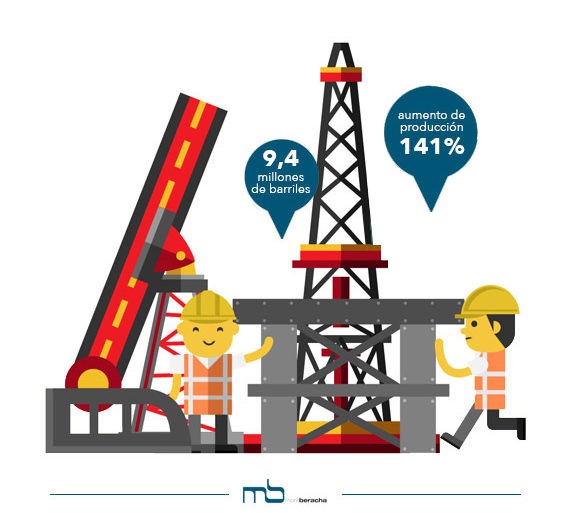Private equity, the financial weapon of shale oil
Moris Beracha.- Richard Nixon’s dream of freeing the US from dependence on foreign oil since the 70s came to pass almost 40 years after and paradoxically that merit — unexpectedly — goes to a democratic president such as Barack Obama, who must enjoy that certain degree of autonomy thanks to the development of shale oil.
A lot has been said about shale oil, about how it has succeeded in increasing production in the US: an increase of 141% (more than doubled) in 7 years from 3.9 million to more than 9.4 million barrels a day between September 2008 and the beginning of 2015.
It is also mentioned the fact that pure competition is what dominates because we are no longer talking about large transnational corporations, the seven sisters in the 60s or 70s that agreed on market sharing and fixing a similar price, but neither is there state intervention nor public companies. There are simply hundreds of private smaller and medium-sized companies that were born in many cases as business initiatives.
However, there is little mention of which financial mechanism has been used. The vast majority did not have the choice of traditional banking or the intervention of a highly important capitalist to engage in an activity which at the beginning was the subject of doubts, risks, and environmental criticisms. Also, even the cinema joined that campaign with the movie “Promised Land”, starring and financed by Matt Damon.
Where did part of the money come from? There was the choice of capital market, issued shares, but the resource was inadequate and it is when it is forged the alliance between those small or medium-sized companies of shale oil and shale gas, which found the financial alternative in private equity.
In this regard, I tell you that we had the opportunity of reading an interesting study carried out by the firm EY at the beginning of 2016 where — despite low oil prices reported at that moment — the participation rate in private equity, shale oil, and shale gas became a way of capitalizing on opportunities.
This survey conducted by EY collected the answers of 100 executives of private equity that have invested in projects of shale and the conclusions for 2017 are clear and encouraging: “The expectation is that 2017 will be the year of recovery and oil companies as well as private equity will be competing for asset quality” and “looking to the future, most of the respondents foresee that private equity will play a vital role in oil money and shale gas.”
What are the advantages? They are simply in the fact that private equity — according to the respondents — provides immediate short term financing at a flexible interest rate, which was demonstrated when oil prices fell and traditional bank loans were closed for small or medium-sized companies.
I would like to mention some data of that survey that can be downloaded on the EY website www.ey.com. For example, the question: What are the two main engines of Private Equity activity in oil and gas industry? was answered by 64% of the executives who have had a positive assessment of the assets of oil and gas companies despite the pressure of low oil prices and 44% say that they have been the choice in the shortage of company finance traditional sources.
There is a paragraph that clearly describes why private equity is an option for those small businesses that are seen in US oil and gas industry, even at low prices: “This environment is providing opportunities for astute investors and private equity is striving to discover that silver lining hidden in a depressed price situation of raw materials or commodities”.
In other world regions we see that there is an effort to emulate that same success and therefore the perception is rather favorable toward similar projects in North America, Asia and Africa. In Latin America, there is a greater restraint on the entrance of private equity but it is revealed that Brazil, Colombia, Mexico and Perú are interested.
Now, it is good to point out that while private equity takes risks much more than banks or affiliated company traditional investors and likes innovation and new technology as shale oil and shale gas companies have boosted in order to reduce costs, it definitely dislikes political risk.
Te invito a que ingreses a mi página web: www.morisberacha.com




Comentarios
Publicar un comentario